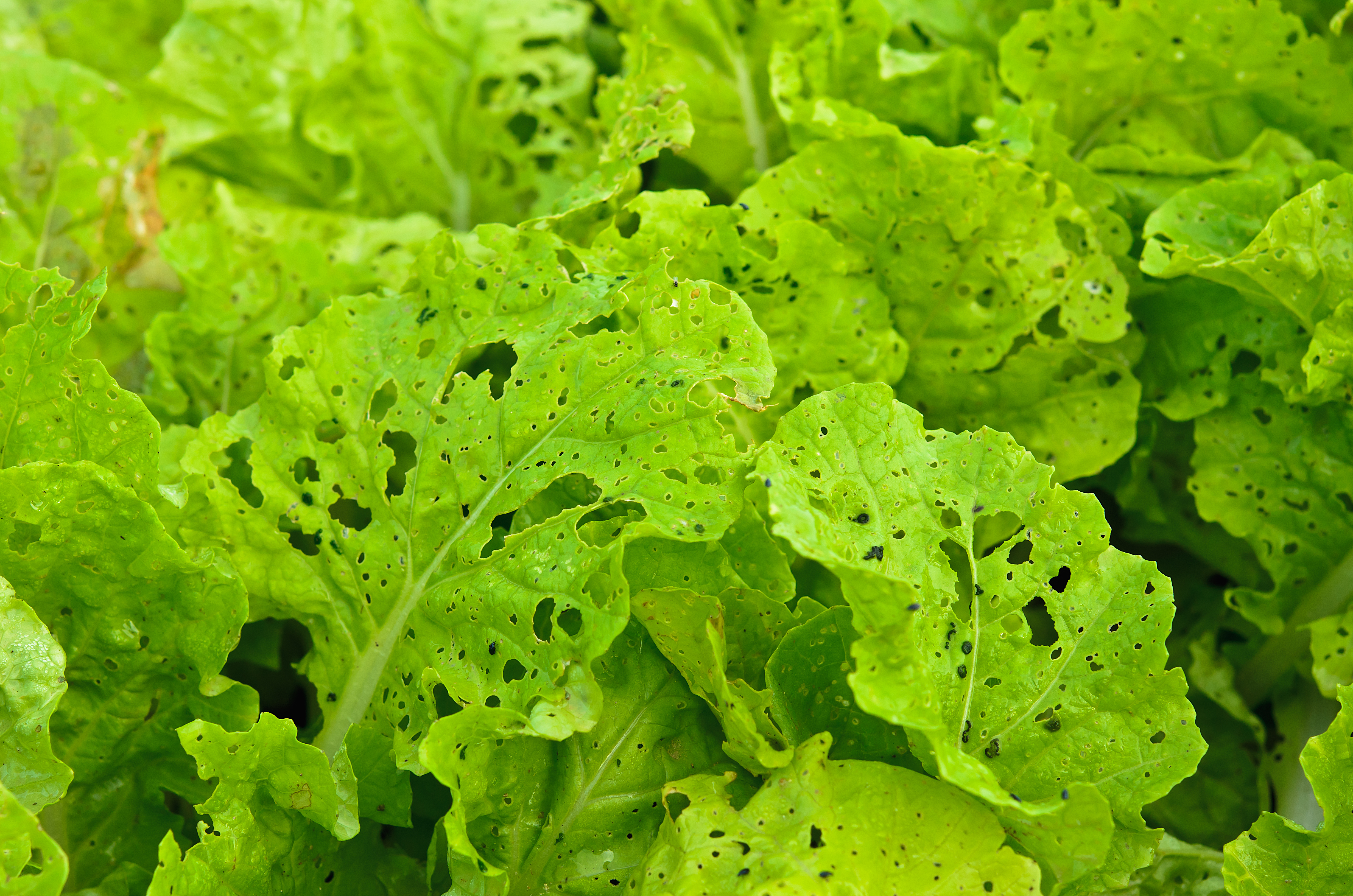How Squeamish Are You About Bugbitten Greens?

Our vegetable gardens cultivate us as we cultivate them; it is for this reason that GardenZeus expert Darren Butler believes that so many longtime gardeners have special wisdom – they have been grown long and well by their gardens.
Garden greens inevitably bring up questions of self-knowledge in the area of insect and gastropod squeamishness: sooner or later, you will visit your chard or lettuce plants and find that several of the luscious, large leaves that you were almost ready to harvest have been repurposed. Leaves may be riddled with holes, spotted with dark insect frass, or even adorned with clumps of snail poop. Maybe 5%, maybe 10%, maybe 30% or more of some leaves will be missing.
It is these situations, when some might argue there there is no right or wrong answer, that cultivate the gardener. Do you harvest the leaves and happily use them without hesitation? Do you use the leaves but worry that it is somehow wrong to do so or that you might contract a deadly or at least highly inconvenient disease? Do you so consistently discard imperfect produce that it has never even occurred to you to eat bugbitten greens? Do you harvest such leaves only under duress, such late in the season, during societal collapse, or otherwise when undamaged leaves aren’t available?
Whether through special wisdom or more likely garden obsession, Darren Butler happily eats bugbitten greens. Should these leaves be washed with extra care and thoroughness prior to eating? Yes. Should permission be obtained before cooking with such leaves from anyone who will eat them? Absolutely. Is there a point of no return with bug-damaged leaves? Certainly. But these and similar common-sense caveats aside, Darren enjoys imperfect garden produce and has survived well into adulthood while doing so.
To view customized growing instructions in your area, go to GardenZeus and enter your zip code; then go to the specific plant, such as looseleaf lettuce, spinach, chard or mache.
Other articles of interest:
What Do You Do When Your Lettuce Bolts?
Why Is My Lettuce Turning Brown? It’s Probably Ethyene Gas
GardenZeus Tips For Shading Vegetables During Hot Weather